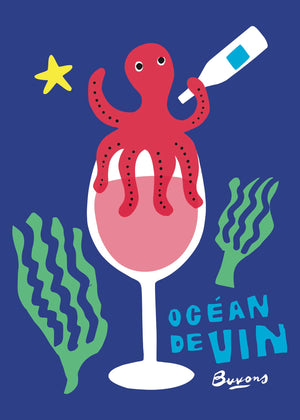
Grape: Chardonnay
Region: Epernay, Champagne, France
Hubert Soreau is not from Champagne and like many outsiders who have found their way into traditional, European viticultural regions (ref. Tony Bodenstein at Prager, Michi Moosbrugger at Schloss Gobelsburg, Ted Lemon at Dujac), he is making waves. He is part of the single vintage, single parcel, single barrel approach currently utilized by a handful of growers in the region, but he also brings to his work a perspective unencumbered by traditions and conventions. Le Clos l’Abbé is a single parcel outside of Epernay where the Vallée de la Marne and the Côte des Blancs meet. This parcel was originally planted in the 9th Century after the Bishop of Reims ordered it cleared for viticulture. At that time, it was known as Mons Ebbonis and afterward, as Mont de Bon in the 14-17th Centuries when the parcel was predominately planted to red grapes. The Counts of Epernay then purchased the parcel in the 17th Century from the Bishop of Reims, had to build an Abbey on the site in addition to paying remunerations, and it has been used for Champagne production ever since.
Hubert was born in the far north of France, in the town of Maubeuge, on the border of Belgium. His family moved to Champagne, in a house across from Le Clos l’Abbé, where the site essentially served as his back yard. His parents were able to purchase a small parcel in 1993 and Hubert added to that original holding with another purchase in 2003. He never uses pesticides or herbicides and he picks late in the season with an average ripeness of 11° Baumé. Fermentation takes place in both used barriques and neutral 300L Hautvillers oak barrels and is finished with minimal dosage.
From a parcel of old chardonnay vines located on the border of Epernay and the Côtes des Blancs, the fruit is picked by hand and vinified and aged in neutral 300L barrels harvested from the nearby Hautvillers forest. After 6 years of aging sur-latte, it was disgorged and bottled with minimal dosage. Aromatically, the wine resonates with white fruits, citrus, and a clear, stony, mineral edge. On the palate, the wine is taught, balancing rich texture with electric acidity which gives the wine a feeling of power and weightlessness. Soreau’s 2011 is delicious, and it will be allocated this year like it has been in the past.




